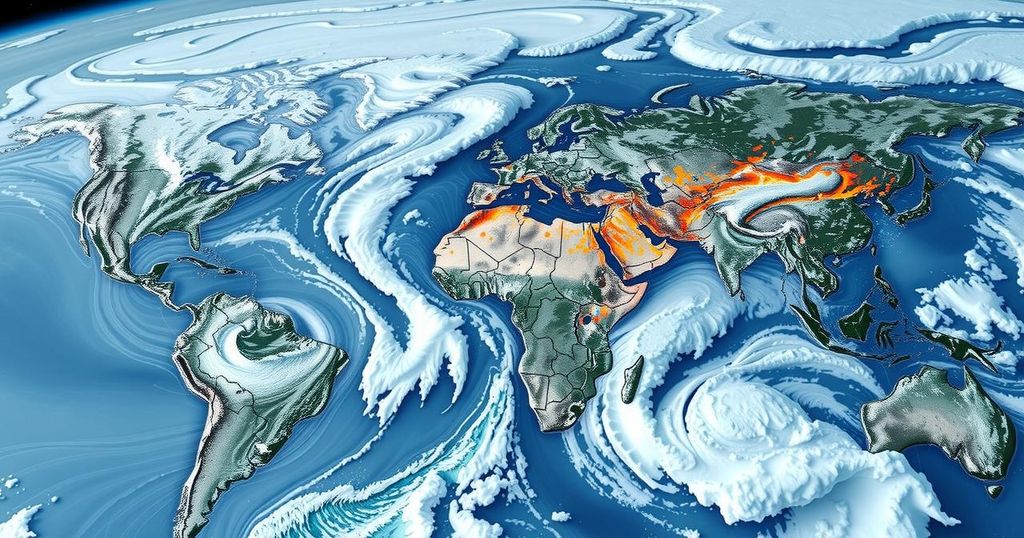Extreme weather in 2024 reached alarming new levels, with temperatures driving heatwaves, droughts, wildfires, storms, and floods that claimed thousands of lives and displaced millions. Climate change contributed significantly to these events, demonstrating a pressing need for a transition away from fossil fuels and improved disaster preparedness.
In 2024, extreme weather events surged to unprecedented levels, registering record temperatures and leading to catastrophic consequences such as heatwaves, droughts, wildfires, storms, and floods. These phenomena resulted in thousands of fatalities and the displacement of millions, underscoring the immediate need to transition from fossil fuels. Climate change was directly linked to at least 3,700 deaths from just 26 notable events, indicating a much graver toll likely numbering in the hundreds of thousands overall.
The year was marked by extreme floods attributed to climate-amplified rainfall, with 15 out of 16 studied instances being directly influenced by climate change. The science behind this is straightforward; a warmer atmosphere is capable of retaining more moisture, which manifests in more severe rainfall. The lack of efficient warning systems exacerbated fatalities, particularly during floods in Sudan and Brazil, signaling a critical need for updated flood defenses.
Climate Central’s analysis revealed an increase of 41 dangerous heat days globally in 2024, predominantly affecting vulnerable small island and developing nations. These extreme heat conditions, often overlooked, demonstrate the pervasive impact of climate change across diverse regions.
While many extreme incidents were influenced by the El Niño phenomenon, studies indicated that climate change played a more significant role, particularly evident in the historic drought affecting the Amazon. The ongoing climate crisis increasingly trumps natural climatic variations in shaping weather patterns. Furthermore, hot oceans and elevated air temperatures intensified storms like Hurricane Helene and Typhoon Gaemi, with studies confirming that the majority of hurricanes since 2019 have been bolstered in intensity due to human-induced warming.
The Amazon rainforest and the Pantanal Wetland faced severe impacts from climate change in 2024, with droughts and wildfires resulting in considerable biodiversity loss. As a vital global carbon sink, protecting these regions from further deforestation is crucial in combatting climate change and safeguarding their ecological integrity.
The article discusses the dire consequences of extreme weather events in 2024 exacerbated by climate change. It highlights the unprecedented nature of these events, including record temperatures and their direct impacts on human life and ecosystems. The analysis draws attention to the broader implications of climate change, particularly in relation to natural phenomena such as El Niño, emphasizing the urgent need for climate action and improved infrastructure to mitigate future risks.
In conclusion, 2024 has been a pivotal year that starkly illustrates the severe impacts of climate change manifested through extreme weather events. The unprecedented rise in heatwaves, floods, and storms underscores the urgency to reduce reliance on fossil fuels and enhance protective measures against such disasters. Addressing deforestation in critical areas like the Amazon is imperative to preserving biodiversity and maintaining the Earth’s ecological balance.
Original Source: reliefweb.int






